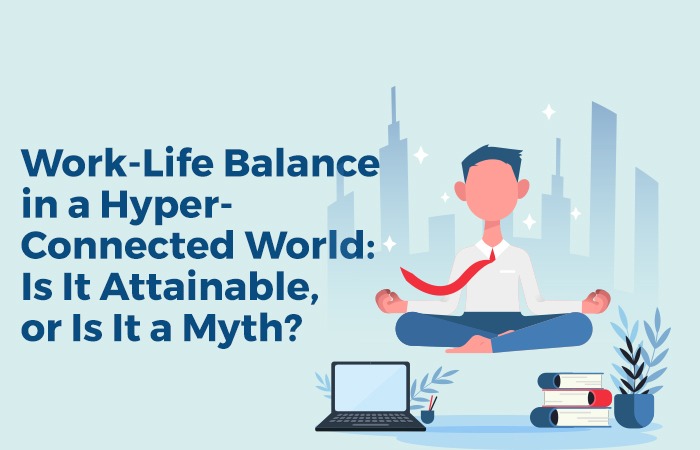In recent years, remote work has gained significant popularity, with many companies embracing this flexible work arrangement. The ability to work from anywhere has revolutionised the traditional office setup and transformed the way we approach our professional lives.
However, like any work arrangement, remote work comes with its own set of advantages and disadvantages. In this blog post, we will explore the pros and cons of remote work to help you make an informed decision about whether it’s the right fit for you.
Pros of Remote Work:
1. Flexibility and Work-Life Balance: Remote work offers unparalleled flexibility, allowing individuals to design their work schedules around their personal lives. This flexibility promotes a better work-life balance, enabling employees to spend more time with their families, pursue personal interests, and maintain a healthier lifestyle.
2. Increased Productivity: For many individuals, working in a remote environment can lead to increased productivity. With fewer distractions, employees can often focus better on their tasks, resulting in higher-quality work and improved efficiency. Remote work also eliminates the stress and time wasted in daily commuting, giving employees more time to dedicate to their work.
3. Access to a Global Talent Pool: By embracing remote work, companies can tap into a global talent pool, allowing them to hire the best and brightest individuals regardless of geographical limitations. This expands the possibilities for collaboration, diversity, and innovation, ultimately benefiting both employers and employees.
4. Cost Savings: Remote work can translate into significant cost savings for both employees and employers. Employees can save money on commuting expenses, work attire, and meals, while companies can reduce costs associated with office space, utilities, and equipment. This mutually beneficial arrangement can lead to increased job satisfaction and financial well-being.
5. Reduced Environmental Impact: Remote work has a positive environmental impact by reducing commuting-related carbon emissions. With fewer people commuting to and from work, there is a significant decrease in traffic congestion, air pollution, and fuel consumption. Embracing remote work can contribute to a more sustainable future by minimizing our carbon footprint.
Cons of Remote Work:
1. Social Isolation and Lack of Collaboration: One of the major downsides of remote work is the potential for social isolation. Working remotely means missing out on daily face-to-face interactions with colleagues, which can lead to feelings of loneliness and disconnection. Additionally, remote work can sometimes hinder spontaneous collaboration and impede the exchange of ideas that naturally occur in an office environment.
2. Blurring of Work-Life Boundaries: While remote work offers flexibility, it can also blur the boundaries between work and personal life. Without clear separation, individuals may find it challenging to disconnect from work, leading to burnout and increased stress levels. Establishing a structured routine and setting boundaries becomes crucial to maintain a healthy work-life balance.
3. Dependence on Technology: Remote work heavily relies on technology, and technical issues can be a significant challenge. Internet outages, software glitches, and connectivity problems can disrupt productivity and communication. Additionally, the constant use of digital devices may lead to increased screen time and potential health issues, such as eye strain and musculoskeletal problems.
4. Potential Lack of Structure and Discipline: Not everyone thrives in a remote work environment. Some individuals may struggle with self-discipline and staying motivated without the structure and supervision of an office setting. Remote workers need to establish effective time management strategies and create a conducive work environment to maintain productivity and meet deadlines.
5. Reduced Face-to-Face Collaboration: While remote work can foster virtual collaboration, it cannot entirely replace the benefits of in-person interactions. Face-to-face communication allows for nuanced conversations, relationship-building, and non-verbal cues that contribute to a deeper understanding and stronger teamwork. Remote work may pose challenges for certain types of projects or roles that require constant physical presence and direct collaboration.
Remote work offers remarkable advantages, such as increased flexibility, productivity, and access to a global talent pool. It also provides cost savings and contributes to a more sustainable future.
However, it is crucial to consider the potential drawbacks, including social isolation, blurred boundaries, reliance on technology, and the need for self-discipline. By carefully weighing the pros and cons, individuals and organizations can make informed decisions and implement strategies to optimize the remote work experience.
Ultimately, finding the right balance between remote and in-person work, adopting effective communication tools, and nurturing a supportive virtual work culture can help maximise the benefits of remote work while mitigating its challenges.
Remember, the suitability of remote work depends on personal preferences, job requirements, and the organisation’s overall dynamics. By understanding the pros and cons, individuals and companies can embrace remote work in a way that aligns with their goals and values, leading to a more fulfilling and successful work experience.













